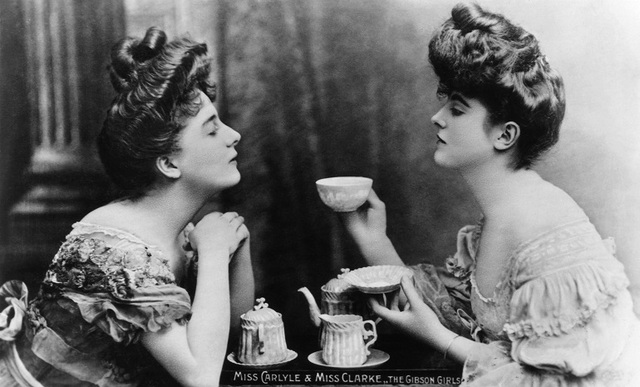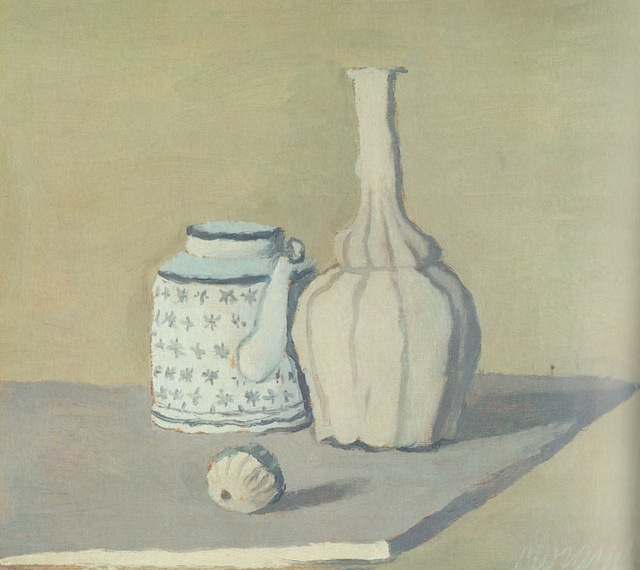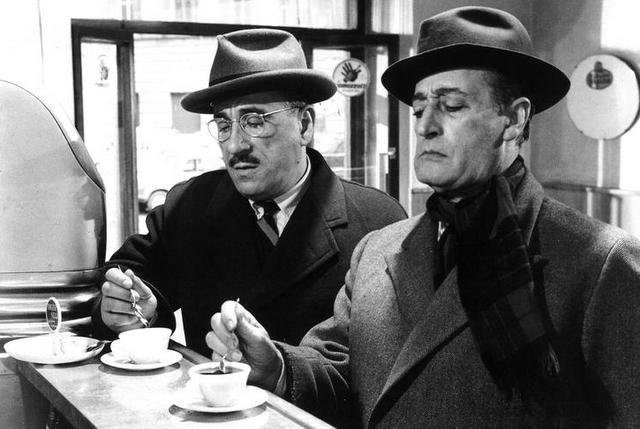The setting: a sultry evening at the beginning of August, La Piazza di Groppodalosio, a small group of friends and neighbours sit chatting and savouring the first threads of cool air as they make their serpentine way through the overheated village. A small blessing at the end of a long torrid day, one of the hottest, they say, in living memory.
“Vi offro un caffè?” asks Donatella.
“A quest’ora no, grazie” we reply
“e se faccio invece un tè?”
“mmmh … un tè lo beviamo volentieri … ma avete il latte fresco?”
“Il latte fresco … e perché?”
“Perché il tè lo beviamo solo all’inglese, cioè, fatto in una teiera, e con il latte fresco”
“Oddio!” exclaims Donatella
“non ti preoccupare”, I reassure her, “ti insegno io”.

Ecco come si fa il tè all’inglese!
Donatella disappears into the house, reappearing some minutes later with a lovely tray containing an elegant, but never used teapot, cups, teaspoons, teabags, and an empty china milk jug which I take round to our house and fill with fresh milk (Donatella only has UHT semi-skimmed milk … yuk!). I explain to Donatella that the tea is put into the teapot and covered with the correct quantity of boiling water … a revelation to her.
“Usiamo la teiera per fare l’infusione” I tell her “ci vogliono circa cinque minuti. Poi, il latte si mette nelle tazze prima del tè, e quando l’infusione sarà pronta, si versa il tè sopra il latte”.

Giorgio Morandi, “Natura Morta”, 1951
Donatella is both fascinated and amused, but is not a big tea fan. Being inquisitive by nature, however, she accepts my offer to try a sip of ‘real English tea’. And like many of our Italian friends who are not normally tea drinkers, she’s surprised to find that she likes it.
“Ci hai messo lo zucchero?”
“No”
“ma non è amaro, come mai?”
“perché c’è il latte che lo rende più dolce”
“mmmh, è buono!”
Donatella’s husband, Ivan, is impressed. He enjoys his cuppa, and we begin to compare our little ‘tea ceremony’ to the importance of knowing how to make a great cup of Italian coffee.
“Sai, quando vai in un bar dove non sei mai stato prima, e guardi come il barista fa il caffè, capisci subito se sarà buono o meno, no?” I ask Ivan
“Sì, è vero, loro hanno la loro tecnica. Sanno come trattare il caffè, e come riscaldare il latte al punto giusto quando ti fanno un cappuccio. Vedi come battono il bricco sul banco un paio di volte prima di versarlo e ti dici, questo sì che sarà un buon caffè!” he replies
Donatella’s youngest daughter, Chiara, is impressed by her mum’s courage
“Cavolo mamma … hai offerto una tazza di tè a un Inglese … è come offrire un caffè a un Napoletano!”

… e questo … che cacchio è?
Donatella is proud to have learnt a new skill, and reveals:
“proprio stamattina, mentre sistemavo l’armadio in cucina, stavo per buttare quella vecchia teiera che non uso mai … ma pensa un po’!”.
If you need any help with translating the phrases in Italian please leave a comment.








Comments:
Joan Engelhaupt:
“battano il bricco sul banco”
“ma pensa un po'”
Geoff:
@Joan Engelhaupt Volevi una traduzione Joan?
Andrej:
Ciao Geoff
Ma che coincidenza! Il tè nonlo bevo quasi mai.(Di solito bevo solo il caffè.) Ma proprio quando stavo leggendo il tuo blog, bevevo una tazza di tè con bergamotta e fiori di fiordaliso, naturalmente senza zucchero.
Saluti da Andrej
Serena:
@Andrej Ciao Andrej, se mai vieni in Italia, ti faccio una bella tazza di tè io!
A presto, Geoff
Andrej:
Grazie
la berrei volentieri
Andrej
Joan Engelhaupt:
Si, vorrei una traduzione, per favore.
Geoff:
@Joan Engelhaupt Okay:
“battano il bricco sul banco” = they tap the (milk) jug on the counter.
“ma pensa un po’” = just think about that!
Saluti da Geoff
Jaclyn Oddi:
I loved this blog in particular. It made me laugh when Geoff writes that he goes into the house for some fresh milk. When I need fresh milk I take my capre into the sala di mungitura. How do I call what I do there? Do I say ‘faccio la mungitura’ ? Maybe other people won’t be interested in this but I would sure like to see a blog about milking goats.
Serena:
@Jaclyn Oddi Salve Jaclyn!
Abbiamo il verbo ‘mungere’: io mungo, tu mungi, lui munge, noi mungiamo, voi mungete, loro mungono. Il participio passato è ‘munto’: ho munto le capre, latte appena munto, ecc.
Saluti da Serena